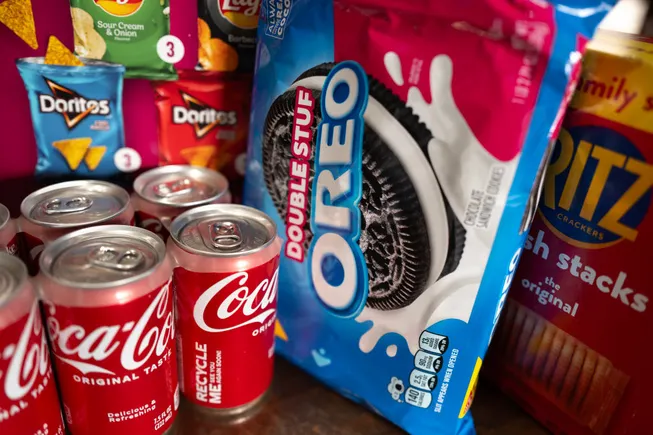Key Takeaways:
- An in-depth report from the Centers for Disease Control and Prevention reveals that ultra-processed foods, such as salty snacks and frozen meals, account for over half of the daily calories consumed by Americans. However, there has been a slight decrease in consumption compared to previous years.
- Between 2021 and 2023, adults in the U.S. received an average of 53% of their daily calories from ultra-processed foods, down from 56% in 2017-2018. For children, ultra-processed foods constituted 62% of their daily calorie intake, a decrease from 66% in previous years.
- The top sources of calories from ultra-processed foods for both adults and children were burgers and sandwiches, followed by sweet bakery products. Sweetened beverages and savory snacks also ranked among the top five calorie sources.
Insightful Analysis:
The CDC’s report sheds light on the impact of ultra-processed food consumption, a concern highlighted by Health Secretary Robert F. Kennedy Jr. and the “Make America Healthy Again” movement as a leading cause of chronic health conditions in the country.
Prior research, including studies conducted by the National Institutes of Health, has consistently shown that ultra-processed foods dominate the American diet in terms of calorie consumption. This recent CDC study corroborates those findings, providing further evidence of the prevalence of these foods in our daily lives.
While there is no standardized definition for ultra-processed foods, the CDC’s study utilized the Nova classification system developed in Brazil. This system categorizes foods based on their level of processing, with ultra-processed foods typically containing industrial formulations and artificial additives like colorings and emulsifiers.
The report also highlights disparities in ultra-processed food consumption based on income levels, with adults in higher-income brackets consuming less of these foods on average. However, children’s consumption remained consistent across different income groups.
In response to the health risks associated with ultra-processed foods, the FDA is working towards establishing a formal definition for these products, potentially leading to stricter regulations in the future. There are also efforts to restrict the purchase of ultra-processed foods using food assistance benefits, particularly targeting sweetened beverages and candies.
Robert F. Kennedy Jr. has emphasized the need to address the role of ultra-processed foods in fueling chronic diseases, calling for bold actions to improve the overall health of the food supply. He has also urged food companies to transition away from artificial colors and dyes, a move that some companies have committed to despite potential challenges.

